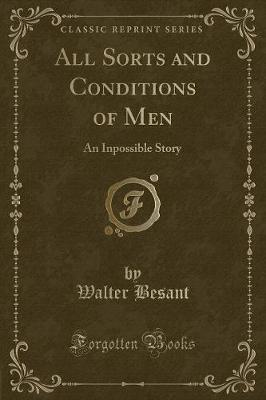Victorian
1 total work
VI153
In All Sorts and Conditions of Men (1882) Besant vividly portrays the poverty and deprivation of London's East End in a story about transformations and crossings of class-boundaries. `I want to feel myself a part of this striving, eager, anxious humanity, on whose labours I live in comfort, by whom I have been educated, to whom I owe all, and for whom I have done nothing...' Simultaneously a `condition of England' novel, New Woman fiction, romance, comedy, satire and crime story, All Sorts and Conditions of Men has strong roots in the politics of nineteenth-century reform. Determined to use her inherited wealth benevolently, Angela Messenger, a young idealistic Cambridge graduate, changes her name and takes lodgings in a Stepney boarding-house to observe and gain understanding of the East End. Young aristocrat Harry Le Breton also haunts the area, discovering his origins, and a new sense of kinship.
Consistently setting itself against the cheerless evangelical strain in Victorian philanthropy, All Sorts and Conditions of Men offers a blueprint for the cultural regeneration of Britain's proletariat as Angela and Harry plan a `Palace of Delight' to provide `a little more of the pleasures and graces of life' for the East Enders they have come to know. Indeed, five years after the book's publication, Besant's `generous and glowing imagination' was praised as the inspiration for the real-life `The People's Palace' on the Mile End Road, and All Sorts and Conditions of Men became that rare thing, a work of fiction which made something happen. This book is intended for students of nineteenth-century English literature, history, and the reform movement; the general reader.
Consistently setting itself against the cheerless evangelical strain in Victorian philanthropy, All Sorts and Conditions of Men offers a blueprint for the cultural regeneration of Britain's proletariat as Angela and Harry plan a `Palace of Delight' to provide `a little more of the pleasures and graces of life' for the East Enders they have come to know. Indeed, five years after the book's publication, Besant's `generous and glowing imagination' was praised as the inspiration for the real-life `The People's Palace' on the Mile End Road, and All Sorts and Conditions of Men became that rare thing, a work of fiction which made something happen. This book is intended for students of nineteenth-century English literature, history, and the reform movement; the general reader.
